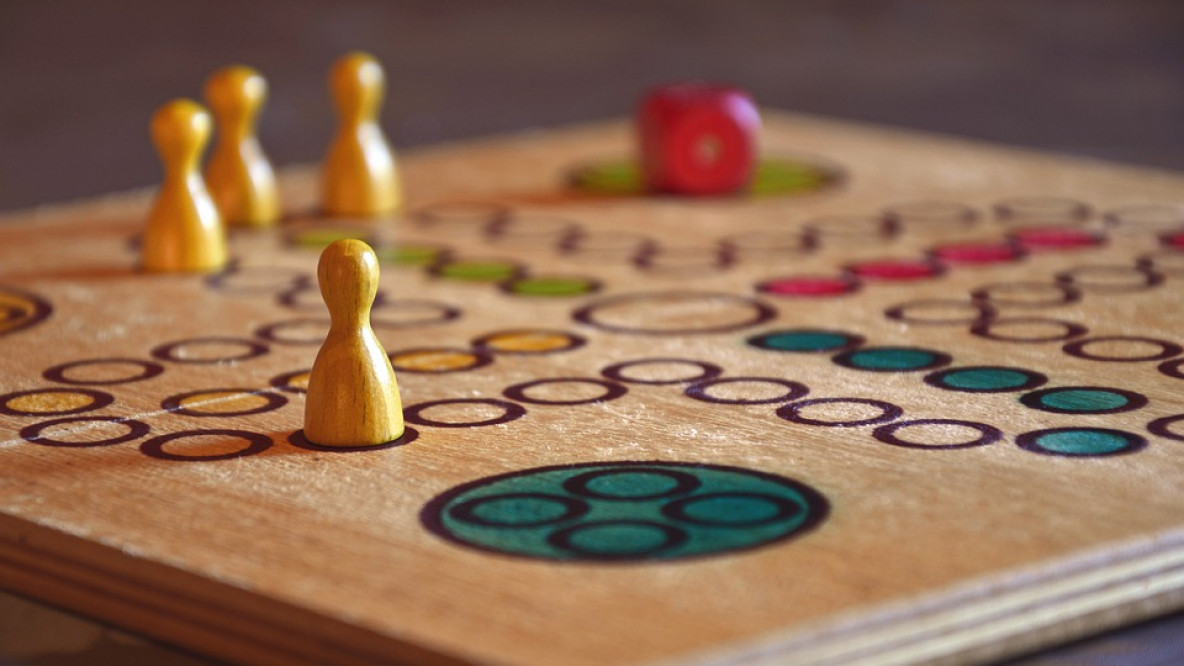Studying board games

Board Games. A good way to have fun with friends or family, but also a way to learn through playing. Games were already played in the ancient world, last year they found their way into the Free University of Bolzano. For the first time a lecture about board games was held at the unibz. As part of the “Studium Generale”, an interdisciplinary range of courses open to students from all different faculties, participants had the possibility to learn about the making of a game and finally invent one of their own.
Lecturer of the course was Mr. Eduardo Guerra. Guerra is specialized in software development and engineering, which he teaches at the Faculty of Informatics at the University of Bolzano. Thus he also has experience of inventing and producing board games: Back in Brazil he created many different board games, here in Italy he still enjoys playing them and keeps his eyes on the development of games: “When I saw that there was no course about board games yet, I immediately proposed the idea to the University”, so Guerra. It was the first time that a course about board games was held at the University of Bolzano, and it was also the first time for the Professor: “In Brazil I held a few workshops, but in this course I had way more time to work with the students, because of that we could go much deeper into their projects”
The course was held in a very practical way. First the students learnt about different aspects of board game development such as game mechanics: “There are different techniques in games, these are important building blocks, which the students later used to develop their own games”, Guerra says. Furthermore, the students learnt about player interactions: “The interaction between the players make a big difference to the game, players can cooperate, compete or even cheat”.
Another important part of the course was to learn how to connect a game to a certain theme and ultimately how to playtest it. According to Guerra playtesting games is one of the most important and time-consuming parts for creating a game, the developer needs to play, modify according to the feedback and play again.
“Games can be fun, yes. But they can also have the purpose to educate or to make a person reflect about a certain topic” – Eduardo Guerra
Finally, as the finishing work for the course, all the students got to invent and produce a game. As Guerra said, this turned out to be very interesting, because students from different faculties chose different topics. Some of the games were funny and entertaining, but there were also some games with an educational purpose or the purpose to make people think, Guerra told: “For example one student made a game about catcalling, it shows this problem very well to society and asks for awareness”.
The eighteen hours throughout the semester seemed to be sufficient to create mature prototypes: “Of course for finishing a game you need a lot of time to playtest them, but all the games created by my students have been well playable and worked with the tricks that I taught them over the course of the semester”, so Guerra.
When asked whether board games are a thing of the past, seeing that digitality and therefore computer games get better and better, Guerra expects quite the opposite: “The market for board games is growing. People are connected to digitality all day, so it comes naturally that in our free time we try to unplug a little bit and do something analog.”
Due to the success the course had over the last semester, it will be held again next year: “I’m looking forward to it, at the beginning of the second period the course will be held again, starting in March”. If it goes like last year, the course will be fully booked within a few days.

Stimme zu, um die Kommentare zu lesen - oder auch selbst zu kommentieren. Du kannst Deine Zustimmung jederzeit wieder zurücknehmen.